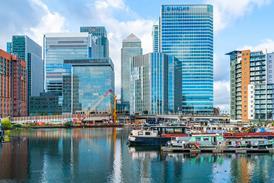Years of political neglect and steady population growth — especially in the South East of England — mean that Britain’s creaking infrastructure requires significant investment.
And it’s no secret that the UK needs to look to foreign investors to bring its infrastructure up to scratch.
But just how attractive is the UK to investment? The coalition would like the world to believe there’s no better place to put its money, and to be fair there is some justification for the claim. For instance, the Arcadis GlobalInfrastructure Investment Index (GIII) ranks 41 countries in terms of their attractiveness to investors, and for the first time the UK has been ranked in the top 10.
The government should get some credit for working hard to improve the financial and taxation environment for investors. It was French money that went into Hinkley Point power station; Chinese that helped Airport City in Manchester; and Canadian dollars that funded the London Array wind farm in Kent. The UK is indeed “open for business”. But much more needs to be done.
This year’s index reveals investors’ frustration over the lack of long-term clarity over infrastructure policy. Too often, it seems, Westminster’s words aren’t backed by actions, and a robust pipeline of ‘spade-ready’ investment deals fails to materialise.
This is certainly true in the housing sector, which is increasingly recognised as part of our ‘core infrastructure’. In central London, where new residential developments are burgeoning, much of the investment is indeed coming from abroad. But where does that leave the wider London and South East, not to mention the rest of the UK? It’s vital that the run-up to the general election doesn’t lead to paralysis and prevent important decisions from being made to address the UK’s housing needs.
Delay and dithering deters investors. Looking again to the GIII’s findings, we know the markets that are most attractive to infrastructure investors — Singapore, Qatar and UAE — have clear, integrated strategies that tie national infrastructure plans to business and economic objectives. This is something the UK should emulate if it is to succeed in attracting more private finance to meet its infrastructure investment needs.
Keith Perry is head of lenders and investors at EC Harris.





























No comments yet